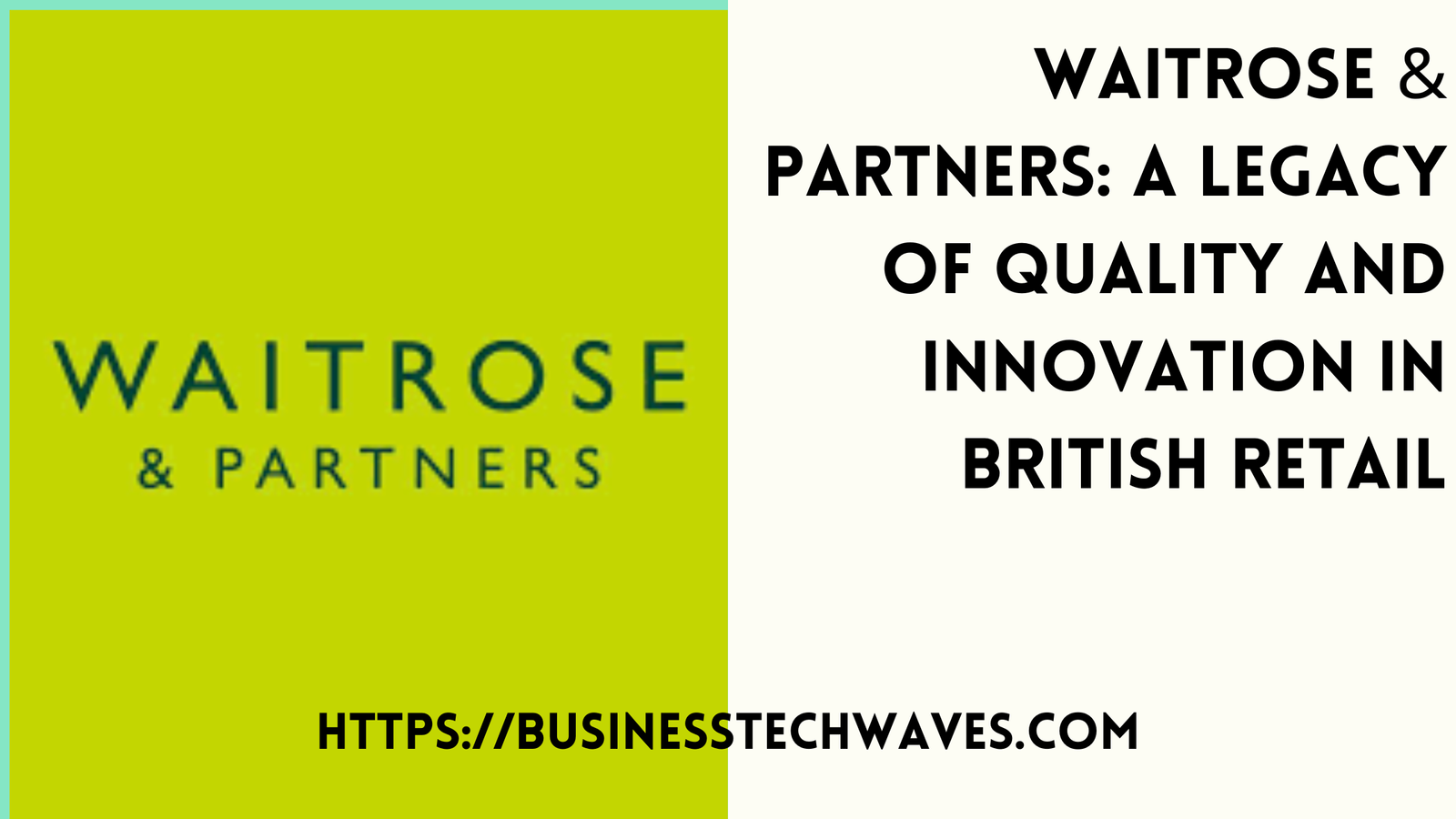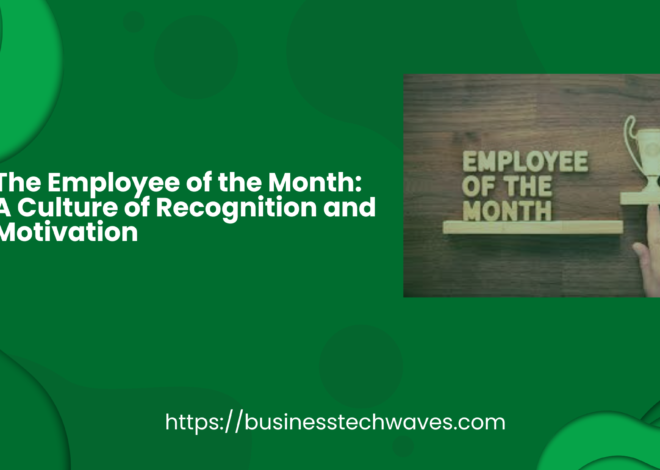
Waitrose & Partners: A Legacy of Quality and Innovation in British Retail 2024
Waitrose & Partners, one of the most iconic names in British retail, has long been synonymous with quality, customer service, and a unique shopping experience. As part of the John Lewis Partnership (JLP), Waitrose is more than just a grocery retailer; it embodies values of fairness, sustainability, and community engagement. With roots dating back to the early 20th century, Waitrose has grown into a leading player in the UK supermarket sector, maintaining its commitment to excellence and innovation.
This article Waitrose & Partners explores the history, business model, core values, and future outlook of Waitrose & Partners, highlighting what sets it apart in an increasingly competitive retail landscape.
A Brief HistoryWaitrose & Partners : From Small Beginnings to National Presence
Waitrose traces its origins back to 1904 when Wallace Waite, Arthur Rose, and David Taylor opened their first grocery store in Acton, West London. Initially named Waite, Rose & Taylor, the store focused on offering high-quality products and personalized service, laying the foundation for what would become a key feature of the Waitrose brand.
In 1937, Waitrose was acquired by the John Lewis Partnership, an organization founded by John Spedan Lewis. This acquisition marked a significant turning point in Waitrose’s history, aligning it with the unique business model and ethical values of the partnership.
Today, Waitrose & Partners operates over 330 stores across the UK, ranging from large supermarkets to smaller convenience outlets. While it remains a distinctly British brand, its product offerings, customer loyalty programs, and approach to business have made it a household name in the world of premium groceries.
The John Lewis Partnership: A Unique Business Model
One of the most distinguishing features of Waitrose & Partners is its ownership structure. As part of the John Lewis Partnership, Waitrose operates under a model that is rare in the retail world: it is employee-owned. Every employee, from the CEO to in-store staff, is a partner in the business, with a vested interest in its success. This partnership model has a profound impact on the culture of the company and its relationship with customers.
The employee-owned structure ensures that partners are more invested in their roles and in the long-term sustainability of the business. Each year, profits are shared with partners in the form of an annual bonus, creating a sense of shared purpose and responsibility. This model has contributed to a high level of customer service, as partners feel personally responsible for delivering a positive shopping experience.
Furthermore, the employee-owned nature of Waitrose fosters a collaborative environment where innovation and ethical considerations are prioritized. Decisions are often made with long-term consequences in mind, rather than short-term profit motives, helping the company to maintain its reputation for integrity and customer-centricity.
Waitrose’s Commitment to Quality
From its earliest days, Waitrose has built its brand around the idea of offering the highest quality products. The supermarket is well-known for its rigorous selection process when it comes to the products it stocks. Whether it is fresh produce, meats, or prepared foods, Waitrose places a premium on sourcing ethically and sustainably.
Waitrose’s dedication to quality extends to its private-label offerings. The “Essential Waitrose” range provides high-quality products at competitive prices, while its premium ranges, such as Waitrose Duchy Organic (created in partnership with the Duchy of Cornwall), appeal to customers seeking organic, sustainably produced food.
Waitrose also champions British farming, with a significant portion of its fresh produce, meats, and dairy sourced from UK suppliers. The company works closely with farmers and producers to ensure high standards of animal welfare and sustainable farming practices. Waitrose was the first UK supermarket to commit to selling only free-range eggs, a testament to its commitment to ethical sourcing.
This focus on quality and ethical production has helped to position Waitrose as a premium brand in the UK grocery market, allowing it to differentiate itself from competitors such as Tesco, Sainsbury’s, and Morrisons.
Sustainability and Ethical Practices
Sustainability is at the heart of Waitrose’s business model. The company has long been a leader in ethical retailing, with initiatives that focus on reducing environmental impact, supporting local communities, and promoting sustainable agriculture.
One of Waitrose’s most notable achievements in sustainability is its commitment to reducing plastic waste. The company has set ambitious targets for reducing single-use plastic packaging and has introduced several initiatives aimed at encouraging customers to reduce waste, such as offering refillable products in select stores.
In 2019, Waitrose launched its “Unpacked” initiative, which allows customers to buy groceries without packaging. This initiative includes a wide range of products, from pasta and rice to frozen fruit and coffee, all available in refillable containers. The program is part of Waitrose’s broader goal to make all of its own-brand packaging either recyclable, reusable, or compostable by 2023.
Moreover, Waitrose has been a pioneer in promoting Fairtrade products. The supermarket offers a wide selection of Fairtrade-certified goods, including coffee, chocolate, and wine, ensuring that farmers and workers in developing countries receive fair wages and working conditions.
Waitrose is also dedicated to reducing its carbon footprint. The company has committed to becoming net zero in its greenhouse gas emissions by 2035, ahead of the UK government’s target. This includes investing in renewable energy, improving the efficiency of its delivery fleet, and working with suppliers to reduce emissions across the supply chain.
Customer Loyalty and Community Engagement
Waitrose has always prioritized building strong relationships with its customers and the communities it serves. One of the ways it does this is through its “myWaitrose” loyalty program, which rewards customers with exclusive offers, personalized discounts, and access to special events. The program is highly popular, with millions of members enjoying benefits such as free newspapers and discounts on select products.
Community engagement is another core element of the Waitrose ethos. The supermarket operates the “Waitrose Community Matters” program, which donates a portion of profits to local charities and community organizations. Each month, customers vote for the causes they wish to support, ensuring that donations go to initiatives that matter most to the community. This program has provided millions of pounds in support to local charities over the years.
In addition to financial contributions, Waitrose encourages its employees to volunteer in their local communities. This commitment to giving back is a reflection of the John Lewis Partnership’s wider philosophy of shared responsibility and social impact.
Innovations in Digital Retail
As consumer preferences shift toward online shopping, Waitrose has embraced digital innovation to enhance the customer experience. The company’s online grocery service, Waitrose.com, has seen significant growth in recent years, particularly during the COVID-19 pandemic, when demand for home delivery surged.
Waitrose has invested heavily in its digital infrastructure to ensure that customers can enjoy the same high level of service online as they would in-store. This includes offering personalized shopping recommendations, a seamless mobile app experience, and convenient delivery options such as click-and-collect.
Moreover, Waitrose has partnered with leading technology companies to improve its supply chain and delivery capabilities. For instance, it has collaborated with Ocado in the past to expand its online grocery offerings, although this partnership ended in 2020 when Ocado switched to a partnership with Marks & Spencer.
Challenges and Future Outlook Waitrose & Partners
Despite its many strengths, Waitrose & Partners faces challenges in an increasingly competitive market. The rise of discount retailers such as Aldi and Lidl has put pressure on Waitrose to maintain its premium positioning while staying price-competitive. The broader shift toward online shopping also means that Waitrose must continue to invest in its digital capabilities to keep pace with customer expectations.
However, Waitrose’s focus on quality, sustainability, and ethical practices positions it well for the future. As consumers become more conscious of environmental and social issues, Waitrose’s commitment to responsible retailing will likely resonate with a growing segment of the market.
Looking ahead, Waitrose is likely to continue expanding its product offerings, particularly in the organic and plant-based categories, while furthering its sustainability goals. Its ongoing investment in digital technology and customer experience will also be crucial in maintaining its competitive edge.
Conclusion
Waitrose & Partners has carved out a unique place in the UK retail market, distinguished by its commitment to quality, ethical sourcing, and community engagement. As part of the John Lewis Partnership, it operates under a business model that emphasizes employee ownership and shared success, contributing to its strong reputation for customer service and corporate responsibility.
In a rapidly evolving retail landscape, Waitrose’s focus on sustainability, innovation, and long-term value creation will ensure that it remains a trusted name for generations to come. As the company continues to adapt to changing consumer preferences and market dynamics, it will undoubtedly play a key role in shaping the future of British grocery retail.


